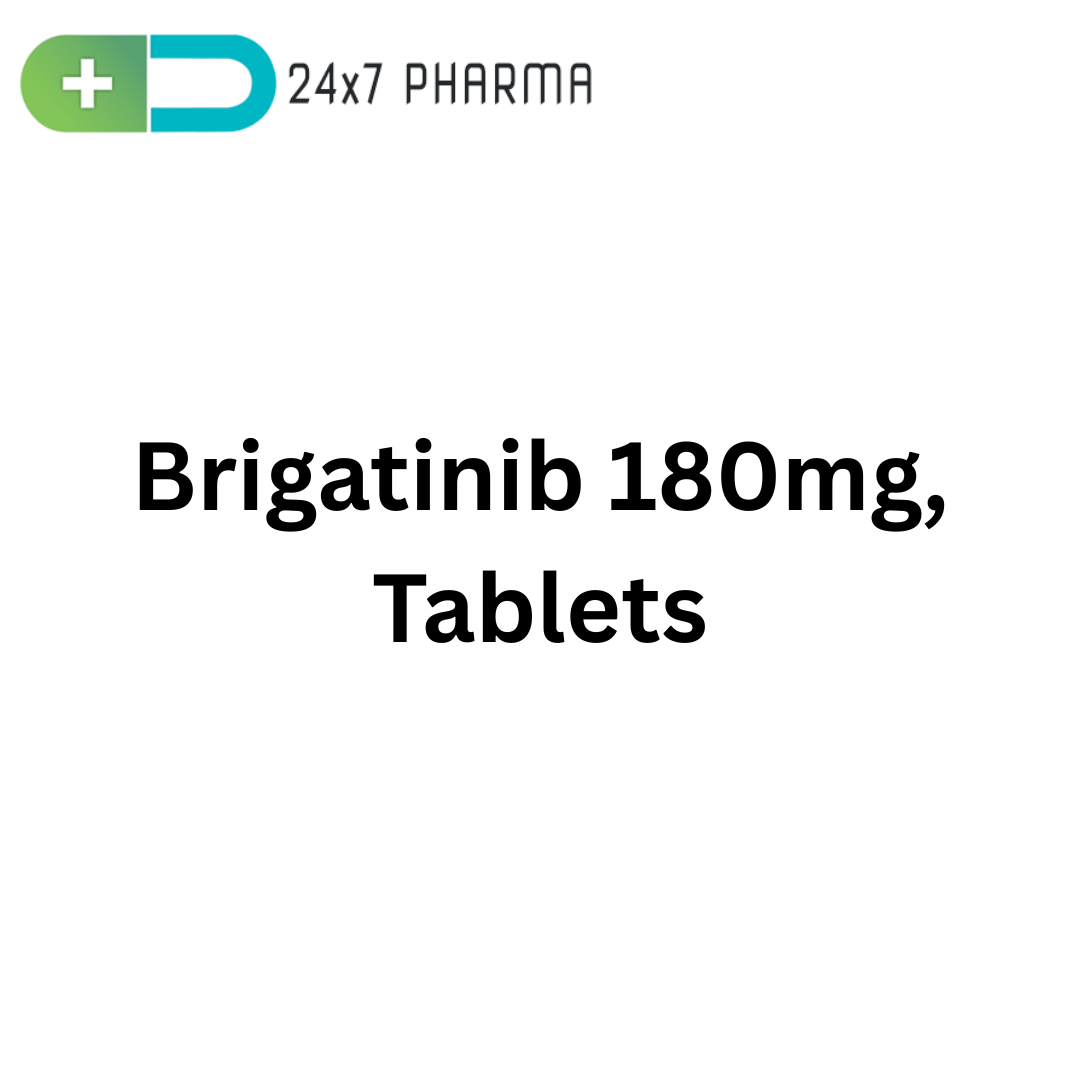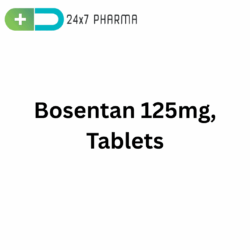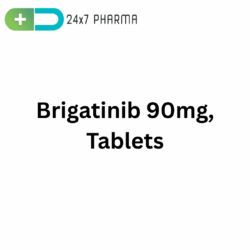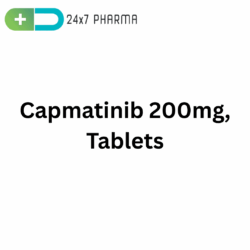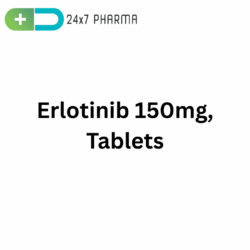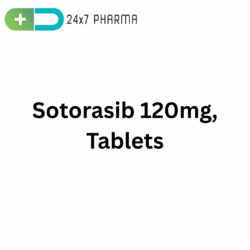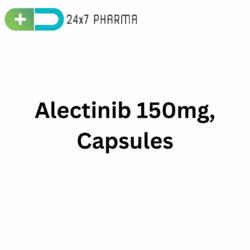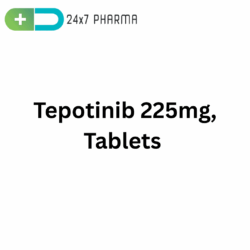LuciBriga 180mg, Brigatinib Tablets
The targeted medication LuciBriga 180 mg, which contains the active ingredient Brigatinib, is authorized to treat metastatic non-small cell lung cancer (NSCLC) that is anaplastic lymphoma kinase (ALK) positive. It provides a substitute for individuals who have advanced on crizotinib or who are intolerant to it because it is a second-generation ALK inhibitor.
What is LuciBriga 180 mg (Brigatinib)?
LuciBriga is a branded formulation of Brigatinib, a tyrosine kinase inhibitor that specifically targets ALK mutations in cancer cells. By inhibiting ALK, Brigatinib disrupts the signaling pathways that drive tumor growth and survival, thereby slowing disease progression in ALK-positive NSCLC patients.
Mechanism of Action
Brigatinib inhibits the activation of the ALK kinase domain by attaching itself to its ATP-binding site. This inhibition blocks downstream signaling pathways involved in cell proliferation and survival, leading to reduced tumor growth. Brigatinib is also effective against ALK mutations that confer resistance to crizotinib, including the G1202R mutation.
Indications
For the treatment of adult patients with ALK-positive metastatic non-small cell lung cancer, LuciBriga 180 mg is recommended:
- As a first-line therapy
- After progression on or intolerance to crizotinib
- Using it on young patients is not advised.
Dosage and Administration
The following dosage schedule is advised for brentinib:
- Days 1–7: 90 mg orally once daily
- Day 8 and beyond: Increase to 180 mg orally once daily
- Tablets can be taken with or without food, and they should be swallowed whole. During therapy, stay away from grapefruit and grapefruit juice.
Dosage Modifications
In the event of negative responses, dose modifications can be required:
- First reduction: From 180 mg to 120 mg daily
- Second reduction: From 120 mg to 90 mg daily
- Third reduction: From 90 mg to 60 mg daily
- Do not raise your intake of bragitinib after stopping it.
Side Effects
Common adverse reactions include:
- Nausea
- Diarrhea
- Fatigue
- Headache
- Cough
Serious adverse reactions may include:
- Interstitial lung disease/pneumonitis
- Hypertension
- Bradycardia
- Visual disturbances
- Elevated creatine phosphokinase (CPK) levels
- Elevated lipase/amylase levels
- Hepatotoxicity
- Hyperglycemia
- Photosensitivity
- Regular monitoring is recommended to detect and manage these adverse effects.
Storage
Store LuciBriga tablets in their original, labeled container at room temperature between 20°C to 25°C (68°F to 77°F). Keep them away from excess heat and moisture, and out of reach of children and pets.
Benefits
When treating ALK-positive non-small cell lung cancer, bragitinib has shown effective, providing:
- Improved progression-free survival compared to crizotinib in clinical trials
- Activity against crizotinib-resistant ALK mutations
- A manageable safety profile with appropriate monitoring
- These benefits contribute to its role as a preferred treatment option in the management of ALK-positive NSCLC.
Prescription
LuciBriga 180 mg is a prescription medication and should be used under the supervision of a healthcare professional experienced in the management of cancer therapies. It is important to assess for ALK-positive status through appropriate diagnostic testing before initiating treatment.
Drug Interactions
The cytochrome P450 (CYP) 3A enzymes metabolize brentinib. Concomitant use with strong or moderate CYP3A inhibitors (e.g., ketoconazole, ritonavir) may increase Brigatinib concentrations, necessitating dose adjustments. Conversely, CYP3A inducers (e.g., rifampin, carbamazepine) may decrease its efficacy. Avoid coadministration with these agents when possible.
FAQs
Is LuciBriga safe during pregnancy?
No, LuciBriga may cause fetal harm. Females of reproductive potential should use effective nonhormonal contraception during therapy and for at least 4 months after the final dose. Males should use effective contraception during therapy and for at least 3 months after the final dose.
Is it safe during pregnancy?
No, it may harm the fetus; use effective contraception during treatment.
Can I crush or split the tablet?
No, swallow the tablet whole; do not crush, chew, or split it.
Does it affect vision?
Yes, it may cause visual disturbances in some patients.
Can I drink alcohol while on LuciBriga?
It’s best to limit or avoid alcohol; consult your doctor for personalized advice.
Conclusion
LuciBriga 180 mg (Brigatinib) is a highly effective targeted therapy designed for the treatment of ALK-positive metastatic non-small cell lung cancer (NSCLC). As a next-generation ALK inhibitor, it offers significant clinical advantages, particularly for patients who have developed resistance or intolerance to earlier treatments like crizotinib. With its dual benefit of overcoming ALK resistance mutations and extending progression-free survival, LuciBriga has become an essential option in the modern oncologic treatment landscape.
LuciBriga represents a critical advancement in personalized cancer therapy, and when used appropriately, it provides a life-extending option with manageable toxicity for patients facing one of the most challenging forms of lung cancer.

